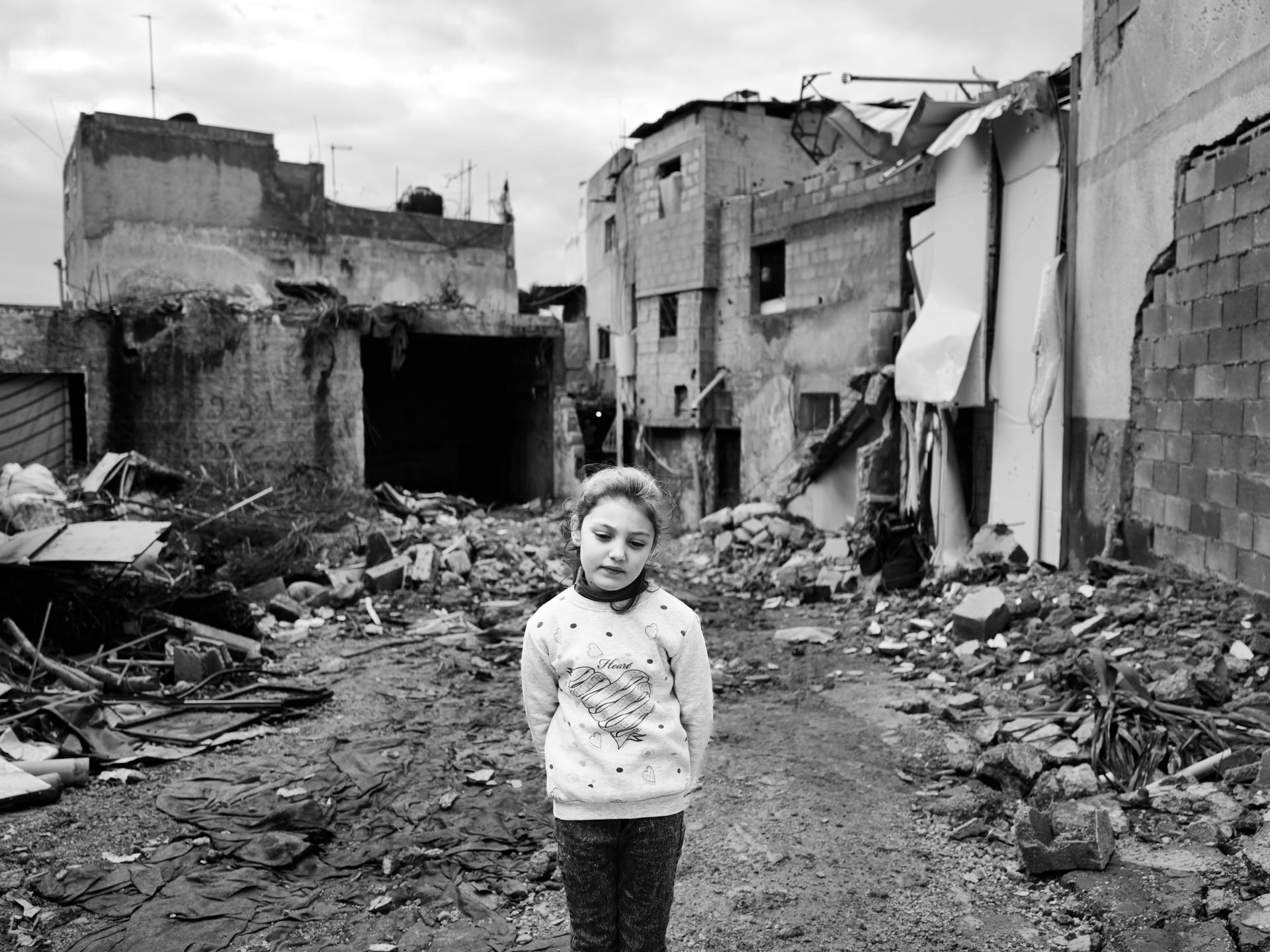

One year after October 7, another war wages on in the West Bank
GalleryPhotographer Sakir Khader has made several trips to the West Bank since the war in Gaza started. Through his work, he seeks to show the daily lives of the inhabitants, especially children, in an environment where violence is omnipresent.
Chosen to join the Magnum Photos agency this year, Palestinian-Dutch Sakir Khader has been photographing the West Bank, where some of his family still live, since 2002. At that time, he was still a child. He was 11 years old when, one day in April 2002, an Israeli strike killed his cousin Kosay in Nablus with two bullets to the heart. "His last breath taken in the garden where we had once shared slices of cold watermelon and talked about our wildest dreams," Khader wrote in the text of his exhibition at the BredaPhoto festival, currently taking place in the Netherlands. This tragic event gave him purpose: "Since then, I've been taking these photos for him, to show the world who we are, that we exist, that we belong to this land of olive trees and figs, with roots deeper than the reach of any bullet."

Since the start of the war in Gaza, Khader has made several trips to the West Bank. In the months leading up to the Hamas attack on Israel on October 7, 2023, the intensification of violence in the Palestinian territories had been predicted, but the past year confirmed it. To varying degrees, attacks by the Israeli army and settlers have become an almost daily occurrence. In recent months, for example, the army has raided the Jenin and Nablus camps, which Israel considers to be hotbeds of combatants. The resulting death toll has also kept rising. As of September 25, 2024, the Palestinian Ministry of Health counted 717 dead, including 160 children and 10 women. From the Israeli point of view, "terrorists". From the Palestinian point of view, "martyrs."
Against this backdrop of omnipresent violence, where do children fit in? They play, admire their elders and dream. But even more than before the deadly Hamas incursion, funerals were frequent and they saw their playgrounds transformed into cemeteries. Their parents are essentially absent, forced to reinvent themselves to cope with the economic crisis. In the West Bank, the unemployment rate has risen from 12.9% before the conflict to 32%, according to the United Nations Conference on Trade and Development. Trapped between settlements and checkpoints, some of these parents have had to give up farming for security reasons, while others have lost their jobs in Israel and are scraping by day by day to provide for their families. As for those who work in the West Bank, they often take several hours to reach their place of work, hampered by the multiplication of Israeli roadblocks since the start of the war. "People don't say it, because they're proud, but it's very hard. Sometimes they don't have enough to eat bread or rice," said Khader.
You have 13.7% of this article left to read. The rest is for subscribers only.
